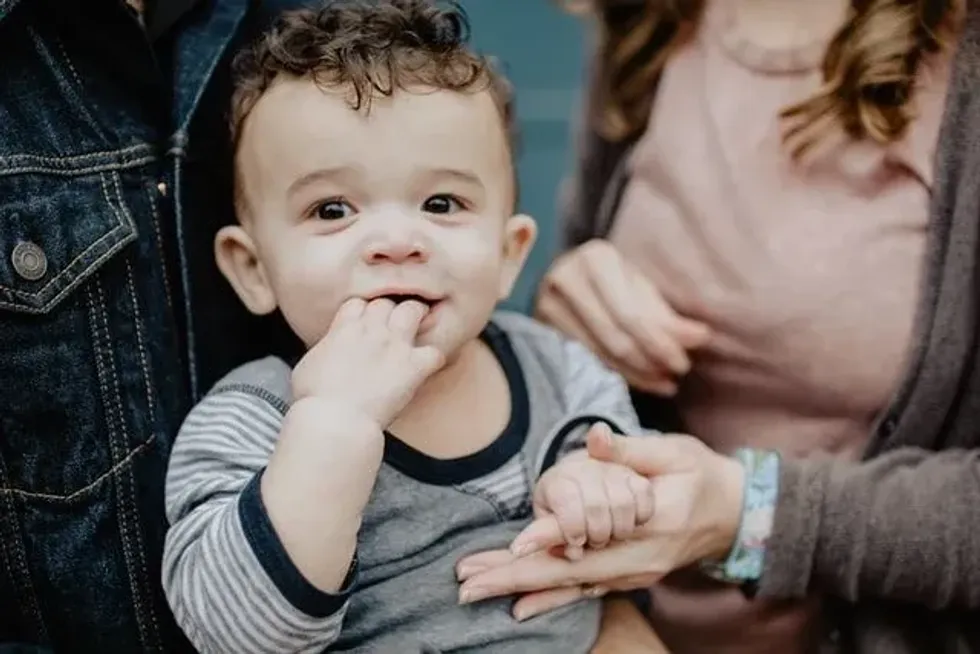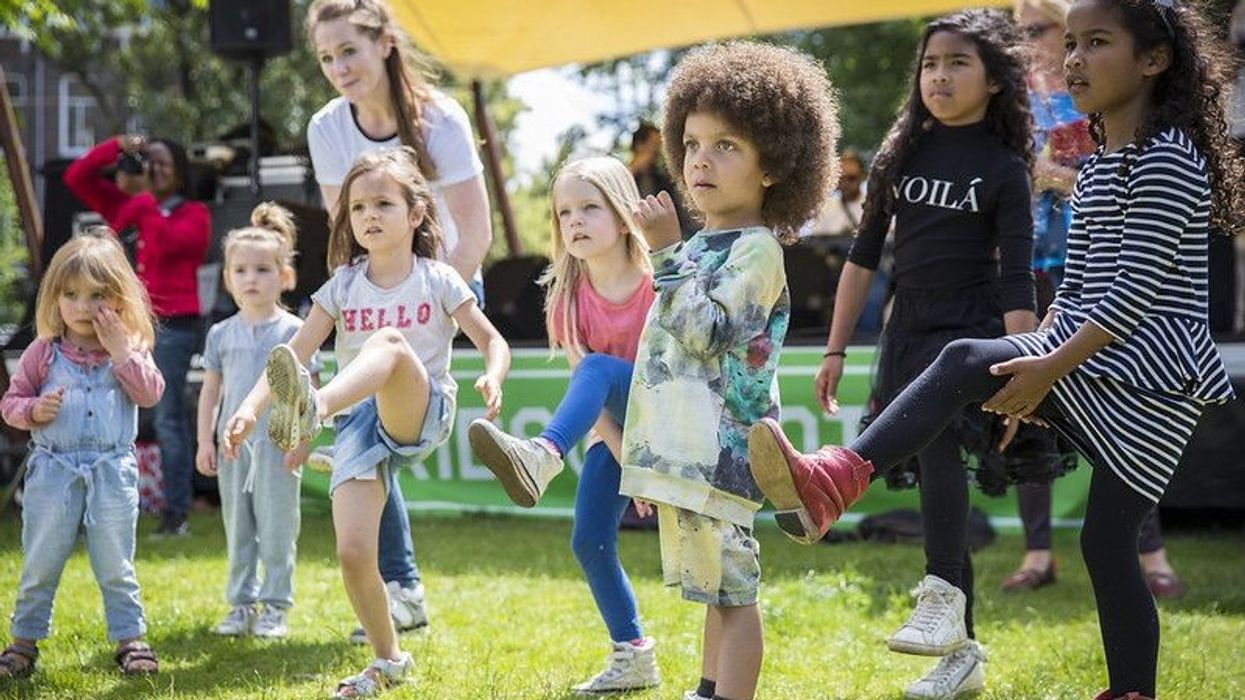So we are now at the 14 month mark!
Your toddler is two whole months into their second year on Earth. They will have reached so many infant milestones by now and you can bet their personality is shining through.
At 14 months old your little one may have taken their first steps, or might be getting very close. They might have a favorite toy or a song they love to dance to, and they could be starting to be a little pickier about what they like to eat, among other things.
This next year is going to be full of development, you will see your baby transform into their own little person right before your eyes.
Every child develops at their own pace, and these 14 month milestones are just a guide and something to look out for in your child. Some children may reach them a little before or a little after, it's definitely not a race.
If you ever have any concerns at all about your child's development, don't hesitate to speak to a medical professional.
If you're keen to learn about the next set of milestones for toddlers, check out our other articles about [16-month-old] milestones and [19-month-old] milestones.
Sleep
At this age, your toddler needs to get around 11-14 hours of sleep within a 24 hour period, including naps. You may already have a sleep routine that works well for you, if not, 14 months old is a good age to start. Waking up through the night is totally normal, and will be for a while yet.
You might experience a sleep regression around this time, as there is a lot going on with development at this stage. Separation anxiety may have set in which could mean your little one needs a lot of extra reassurance and comfort, and a calming routine can really help with this.
Some ways to help your 14-month-old's sleep stay on track:
A bedtime routine can massively help baby to know that it's time to sleep soon. A bath, bedtime stories, a feed, and lots of cuddles all signal that playtime is over and we will be settling down soon.
If your child is anxious about going to sleep, a nightlight can help. Just make sure it is red or amber in color, as these shades don't inhibit melatonin production, so can create a comforting environment without disrupting sleep.
If separation anxiety is the problem, your child is going to need a lot of reassurance that just because you aren't in the room, you haven't abandoned them! This means if they cry, respond to them, and comfort or feed them back to sleep. This will pass, but 14 months old is a very common age to develop this.
Your child might have trouble sleeping at 14 months due to teething. Look out for excess drooling, ear pulling and cheek rubbing, sore and sensitive gums, and overall grouchiness. There are some excellent teething gels and powders around now, and toys you can freeze and give them to chew on to ease the discomfort.
Try not to let your toddler have any screentime for at least an hour before bedtime. The blue light can really impact sleep, watching TV or a game through a screen keeps the mind very alert and active, making falling asleep really tricky.

Food
This is a great time to be leading by example and teaching your 14-month-old good food habits. Eating together is the best way to show them skills like how to use utensils, and that mealtimes are sociable family time too!
If you're breastfeeding this is great, your milk will adapt along with your toddler's growth so they are getting the optimum nutrition for this stage of development, not to mention all the other benefits too.
If you are formula feeding you might notice advertising for 'follow on milk'. As long as your toddler has a balanced diet, their normal formula, plant-based milk, or even cows milk now they are past one year is completely fine.
If you have any concerns about your child's diet, don't hesitate to speak to your pediatrician.
Teething can affect eating at 14 months, if your toddler has sore gums they might not be keen to chew very much so soft and easy-to-eat foods are perfect right now.
Being picky about food is common at this age. It takes many exposures for a child to accept a new food, so even if they reject it or make a face, keep offering small amounts.
A serving size for a toddler is around 1/4 of an adult's, remember their tummies are still only small, and toddlers are great at knowing when they are full.
It can be a worry when our kids don't seem to be eating enough throughout the day, but actually, it's more about what they eat over the course of a week that matters.
If your child doesn't eat much at mealtimes, offer extra snacks they can munch on away from the table.
As you're probably aware, toddlers do not like to be sat down or strapped in for long, so small meals with snacks throughout the day can have a higher success rate than large meals that take a long time to get through.
Make sure to either mash food up or cut into small pieces to reduce the risk of choking, and never leave your child to eat unsupervised. Things that are round and slippery should always be cut up, so that's cherry tomatoes, olives, grapes, hot dogs. If in doubt, cut it up!
To be sure they are getting the correct amounts of vitamins A, C, and D, it is recommended that all children from six months to five years take a supplement. You can get really delicious ones and make it a fun part of the morning routine!

Play & Movement
Play is a key part of the psychological developmental milestones for a 14-month-old. Our children learn so much through playing, it covers communication, emotions, learning to share and so many other important skills.
Language milestones for 14-month-old children include communicating with short words and maybe even small sentences.
Although your toddler might not be saying much (they probably use about three to five words), they can understand a lot of what you say to them, so chatting to them as much as you can is a great way to help their speech along.
Don't fret if your little one hasn't taken their first steps yet, some children wait until they are nearer to 18 months old to walk. If you have concerns do speak to your doctor.
Hold off on buying your toddler 'proper' shoes just yet, shoes and tight socks can stop the feet from straightening out and growing properly. Being barefoot as much as possible will help with coordination and balance and is much better for learning to walk.
Naming things and talking about them really helps develop language skills. You can also start using descriptive words and colors because they will soon start to pick up on and be able to recognize these things too.
Reading with your toddler every day is a wonderful way to help develop not only their speech but their worldview too! Make sure you have books that show all different types of people and situations, from different races to disabilities to stories about different family setups.
"No!" may be something you hear quite a lot at the moment, this is normal and means your little one is learning to assert their independence.
Shape sorting and stack-able toys are great at this age, they will start to develop a sense of pride for figuring things like this out, especially with lots of positive encouragement.
Senses And Emotional Development
Learning to understand their emotions is a key part of the 14-month-old developmental milestones. Your little one will be really interacting with other children now and taking those first steps towards playing together, you will probably see some frustration too especially if their friend has a toy they wanted!
The ability to understand sharing won't quite be there yet but you can lead by example, showing how to take turns and how nice it is to play together.
Showing your child lots of affection is amazing for their emotional development, actions like hugs and kisses make them feel loved and secure, and you will also see them returning the affection, slobbery kisses coming your way!
Empathy will start to develop now, this is a really important part of how we form relationships. You might notice your child getting sad or upset if they see that someone crying or another child upset.
Remember that your little one doesn't yet have control over their emotions, tantrums become more common at 14 months too.
It is really important to stay calm when your child is having a meltdown, they need to know that no matter what, you are there for them. Speak calmly to them, if they want a hug and to calm down they will respond to you reaching out to them.
Sometimes we all just need a moment to be mad before we calm down, and crying can be an amazing emotional release too which actually makes us feel better afterwards.
As far as discipline is concerned, your child is still really too young for this and they simply won't understand, anything they do that could be considered bad behavior is most likely just exploring their environment and learning to understand boundaries.
The best thing you can do is in calm and simple terms, say, for example, "we don't scribble on the walls with our crayons", and sit them down with a piece of paper to show them how crayons should be used.
As well as at bedtime, separation anxiety is likely to show up if they go to daycare or spend any amount of time away from you. A consistent routine can help with letting your child know that you are always going to come back because they will become accustomed to you doing the same thing every day.
Once you are reunited with your 14-month-old, try to make sure they get lots of one on one attention and affection to replenish them for the time you were gone.
It can be really upsetting if your child is having a meltdown as you leave, but remember that you are leaving them with someone you trust, and nine times out of 10, the moment you are out of sight, the tears will halt and the playing will start!
Anything Else To Look Out For
Parenting a toddler is hard work, in fact, it can be exhausting! Parents should remember that you need to look after yourself too.
If you feel overwhelmed it is really important to take some time out. If you don't have anyone else who can watch your child, taking deep breaths and reminding yourself that "this is just a phase" can work wonders.
Kids can tell when we are stressed so taking care of our own mental well-being is key to being supportive and loving parents.
If you enjoyed reading about 14-month-old infant milestones, why not take a look at our other family and parenting articles such as [language development at 20 months] or all our favorite [child party ideas]?










